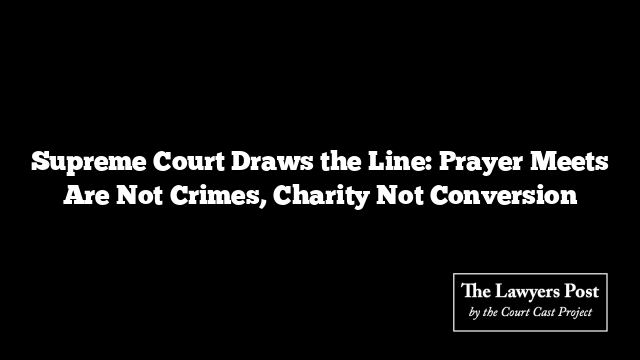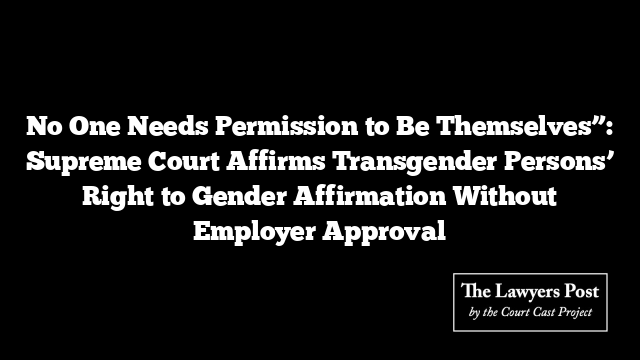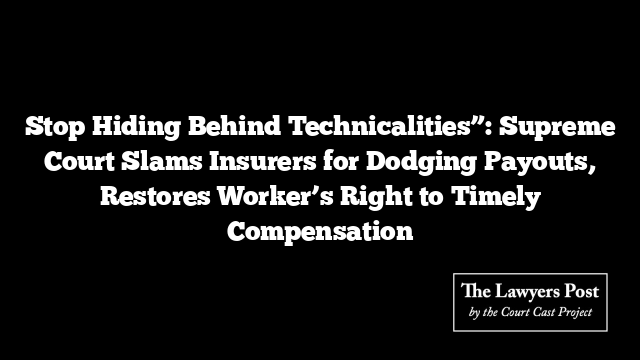In a sharp rebuke to overzealous policing under Uttar Pradesh’s anti-conversion law, the Supreme Court has struck down a series of criminal cases against Dr. Rajendra Bihari Lal, Vice-Chancellor of Sam Higginbottom University of Agriculture, Technology and Sciences (SHUATS), and his colleagues — calling the material against them “utterly incredulous” and the entire exercise “a misuse of criminal law.”
A Bench of Justices J.B. Pardiwala and Manoj Misra dismantled six FIRs filed across Uttar Pradesh under the U.P. Prohibition of Unlawful Conversion of Religion Act, 2021 and sections of the IPC, ruling that none of the complaints actually alleged unlawful conversion. What they described instead were gatherings for prayer and charitable activities — neither of which, the Court clarified, are criminal acts.
The Court noted that one of the FIRs was invalid from the outset because it was filed by a third party, not by a victim or their relative — the only persons legally empowered to do so under the Act before its 2024 amendment. “The bar against third-party complaints was a conscious safeguard,” the Bench said, meant to prevent “busybodies” from dragging others into malicious prosecutions.
But even where FIRs were technically maintainable, the Court found the contents absurdly repetitive. Witness statements appeared to be “cyclostyled,” the same wording and spelling errors recurring across different documents — even mistakes in names were cloned from one statement to another. One such example saw two different witnesses both claiming their names had been forcibly changed to “Rajesh Kumar Samson.”
The supposed evidence — photos and videos — showed nothing more sinister than religious gatherings and Bible readings. “No provision in the U.P. Act or the IPC criminalizes such gatherings or acts of charity,” the judges observed, emphasizing that “receiving foreign aid or doing charitable work in the name of religion is not, by itself, an offence under any law.”
The Court underscored that the allegations lacked credibility and did not meet the threshold to justify prosecution. “The entire investigation seems less like an attempt to uncover the truth, and more like an effort to justify a pre-decided accusation,” it remarked.
One FIR claimed that mass conversions took place on Maundy Thursday. Yet another, filed within minutes at the same police station, repeated the same story word for word. Later complaints surfaced months later, apparently to bypass earlier legal defects. The Bench noted the “glaring inconsistencies” and “cloned witness statements” as telltale signs of fabrication.
The justices concluded that the criminal process was being weaponized. “Criminal law cannot be allowed to become an instrument of harassment, used at the whim of prosecuting agencies on the basis of incredulous material,” they declared, quashing all FIRs linked to the alleged conversions.
However, one FIR that also contained unrelated allegations of threats and extortion was partially retained for limited further examination — but the charges under the UP Conversion Act were struck out.
The ruling sends a strong signal: faith-based assemblies, charity, and preaching, without coercion or inducement, fall outside the scope of criminality. Or, as the Court’s tone suggested — piety and public service are not crimes, and suspicion is not evidence.





